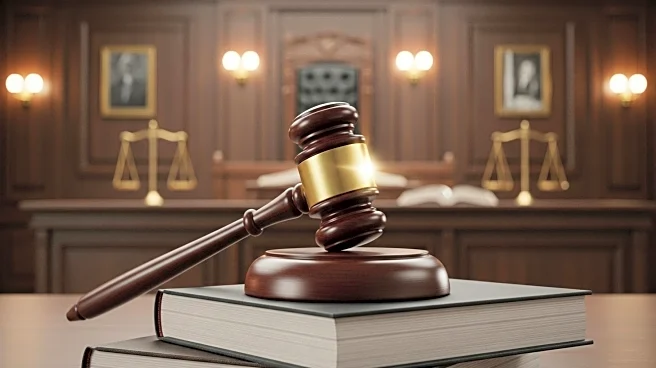What's Happening?
U.S. District Judge William Young issued a ruling against the Trump administration's attempt to deport foreign-born student protesters, declaring the action unconstitutional. The case, AAUP v. Rubio, involved the deportation of non-citizen pro-Palestinian students, which Young determined was a violation of First Amendment rights. The ruling was accompanied by a handwritten note questioning the administration's power, emphasizing the importance of constitutional protections. The decision criticized Secretary of State Marco Rubio and Department of Homeland Security Secretary Kristi Noem for implementing executive orders in a discriminatory manner to suppress free speech. The ruling has been described as monumental for its implications on First Amendment rights, particularly concerning non-citizens.
Why It's Important?
This ruling is significant as it addresses the balance between national security measures and constitutional rights, particularly the First Amendment. It underscores the judiciary's role in checking executive power and protecting free speech, even for non-citizens. The decision could impact future immigration policies and the treatment of non-citizen activists in the U.S. It highlights the ongoing debate over the extent of First Amendment protections and the government's authority to regulate speech. The ruling may influence public policy and legal interpretations regarding the rights of non-citizens, potentially affecting U.S. immigration and civil rights law.
What's Next?
The Trump administration has announced plans to appeal the decision, indicating a continued legal battle over the issue. The appeal process will likely involve further scrutiny of the administration's policies and their alignment with constitutional principles. The outcome of the appeal could set a precedent for how similar cases are handled in the future, potentially affecting the rights of non-citizens and the scope of executive power. Stakeholders, including civil rights organizations and government agencies, will be closely monitoring the developments, as the case could have broader implications for U.S. immigration policy and First Amendment jurisprudence.
Beyond the Headlines
The case raises deeper questions about the ethical and legal responsibilities of government officials in enforcing policies that may infringe on constitutional rights. It also highlights the cultural and political tensions surrounding immigration and free speech in the U.S. The ruling may prompt discussions on the role of the judiciary in safeguarding civil liberties and the potential for executive overreach. Additionally, it could influence public perception of the administration's commitment to upholding democratic principles and the rule of law.










